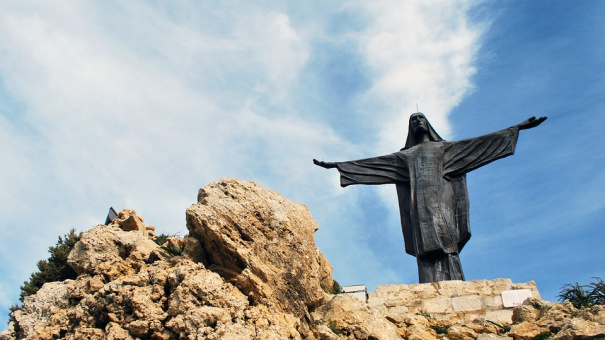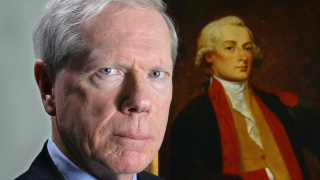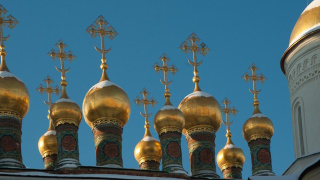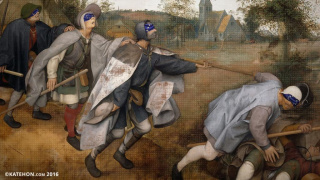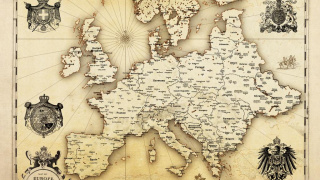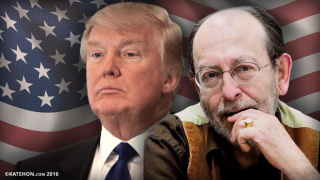ONLY MILITATING CHRISTIANITY CAN PREVENT THE DISAPPEARANCE OF EUROPE
The current time demands urgently, but without improvisation or frivolity, the implementation of an understanding between nations that have been shaped by what has been called Western civilization. The military confrontations and the reciprocal misgivings of the nations of Europe have considerably diminished their prestige and their universal influence. The reunion of these nations with their common roots is essential, and those roots are essentially in Christianity.
Unfortunately, the European Union has despised them and the deep crisis is evident. The initial stage of the union of Europe had to start both from a European conscience of the Europeans, and from a Europe of the sister Homelands. The Europe of merchants and the euro, and the governments at the service of the Eurocracy have not fostered that awareness and has caused manifest hostility among nations, as evidenced by the social upheaval that breaks, in addition, peaceful coexistence in each of they.
Those responsible for this European Union should not know that the enemies of Europe, those who do not want Europe to recover and strengthen, knew that "divide and conquer." Hope is in the Catholic Church, which has been the most effective instrument of that Western civilization. Now, in the struggle, from the expulsion from Paradise to the Parousia, it is permanent, and the Father of lies, who is the Prince of this world, has not only attacked the Church but has entered it, (according to words of Paul VI), the smoke of Satan. With cunning and skill, typical of its nature, has entered breaking the windows, while someone from inside opened the doors.
In a pastoral Council, which is not dogmatic, together with texts that collect dogma, and are read with fruition, there are others who disagree, or hardly can, with the traditional doctrine of the Church. The “aggiornamento”, or updated, to be in tune with the times, has avoided all anathema, has divided the Catholics, has made it possible that, within the Church itself, the dogma was wounded, and sometimes seriously, the discipline of the sacraments, liturgy, and teaching in seminars, novitiates and Catholic universities.
There are three problems, namely: that of religious freedom, as described in "Dignitatis Humnae", that of ecumenism, as a union of the Churches and not as a union of Christians in the "Sponsa Christi" (and Christ does not It was polygamous). And the acceptance of democracy "sui generis" of the Episcopal Conferences. These are problems that, without a doubt, the current pontiff does not have the will to overcome and solve.
It is clear that one of the things that is to be reviewed is the political pastoral of the Church. The one that appeals to the Second Vatican Council is that of liberalism that permeates Christian Democracy and that, logically, gave birth to Christians for Socialism, and to the collaboration of a part of the Church, both saying and teaching, with the communists The historical consensus in Italy of Democrats and communists made it possible that by mutual agreement it was accepted and imposed by law, then approved by referendum, abortion as a right, and with it the culture of death. The implicit ecclesial support, at least, to Christian Democracy was undoubtedly the result of a bad, if not bad, pastoral policy.
This exhibition is a necessary antecedent to affirm that the European man to get out of his lethargy, needs a Church, a pilgrim, of course, but also a militant in time. As a militant it was called, as it is still called purgative and triumphant.
This review includes that, to awaken from his lethargy, the European man, and especially the Catholic, knows - and for that he is taught - that being a pilgrim, he is a militant; and militant is the soldier of Christ, who for that receives the sacrament of confirmation. The ecclesiastical magisterium must, in my opinion, insist on this definition that Jesus Christ makes of Himself: "I am the Truth", (Jn. 14.6) of the whole Truth, and, therefore, of the moral truth, of the scientific, historical and political; and Christ is thus defined by addressing, not only the isolated man, but the man as a social being, and, consequently, the society in which man lives.
This political truth is found in the non-negotiable values, which are like a live rock on which the building rests, that is, the System. These values are basic, immovable. If the building is built on the sand of opinions, the first earth tremor, or a hurricane wind, will tear down the building, turning it into a pile of rubble.
The case of Spain testifies to the consequences of the rejection of such values, that is, of the political Truth. The Constitution has set up a System that is in frank decomposition, dejected by the moral and economic crisis, by the growing discrediting of institutions, by social turmoil and by foreign policy.
The awakening of lethargy to the European man demands that sports patriotism be raised from emotional patriotism to intellectual patriotism, and from intellectual patriotism to Christian virtue. This is what St. Thomas Aquinas tells us, and Leon XIII explains it in his Encyclical "Sapientiae Christianae", dated January 10, 1890: "By natural law we are commanded to love and defend the Fatherland, to the point that the good Citizen do not hesitate to face death in defense of their homeland. The supernatural love for the Church and the natural affection for the Fatherland are two twin loves that are born from the same eternal principle, since God is the author and cause of both ”.
Patriotism is in the social nature of all men (and carries with it) fidelity to Tradition and to the peculiar charisms that have historically shaped the national identity.
